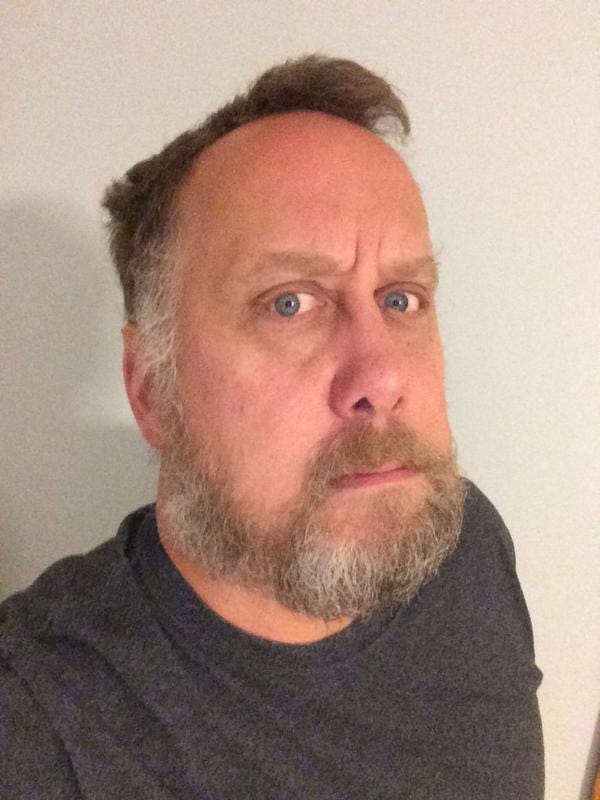Wipe out on waterskis
The Go-Go’s are being inducted into the Rock n’ Roll Hall of Fame and there is a bunch of punctuation happening there that makes me uncomfortable. The possessive at the end of the band’s name, never knowing what to put between “Rock” and “Roll”. Guh. Hate it.
But I love the, uh, Our Lips Are Sealed band and there’s a really terrific documentary about them available on Showtime or through streaming services.
In it, we learn just how ironic “Vacation” was as a follow-up to their debut album. Because they were burned out and not taking vacations, running themselves into the ground. At one point during the filming of that video where they’re all supposed to be waterskiing, the band broke loose from the set and just wandered around the city in their pink outfits, smoking and drinking and hanging out. The self-shattering illusion, the demonstration of collapsing image.
I think about that sometimes when faced with the prospect of a vacation, feeling a bit like Kathy in that picture above there. And I’ve heard about it from a lot of other people who dabble in the anxious and depressive arts (trying out some new terminology here, not loving it). It’s like you have this time set aside to relax but the absence from the stresses only makes those stresses feel all the more potent because you can’t do anything about them from within the hammock in which you now stew.
Maybe it has something to do with my last show being canceled literally moments before I set out for a short vacation. Or the show before that being canceled immediately after I returned from another vacation.
I recall actual 100% relaxing vacations from my adult life but that was back in the days when my job was just a job and there were no kids to plan around. I think I read a lot of novels on those.
So I’m just wondering: if you deal with depression and anxiety, do you feel like you get less out of vacation than you think the normies do? Or are they just better at hiding the vacation stress?
It’s Not Just Britney
A good rundown in The Cut about the legal machine Britney Spears is caught in.
Right now, our mental-health system is predicated upon force. Force over the individual in question, somebody who has been deemed incapacitated, for example, because of having been diagnosed with a “severe mental illness” like bipolar disorder or schizophrenia. Whether such psychiatric diagnoses are medically meaningful is debated intensely. What psychiatric diagnoses are certainly: legal terms.
I’m not sure how many people know about the custodial framework surrounding mental illness. It’s large enough, broken enough, and byzantine enough to baffle even the people who know a lot.
There’s no real way to prove you do or don’t have some mental illness. These diagnoses remain unsubstantiated biologically, more metaphor than medicine. This was even admitted by the then-head of the National Institute of Mental Health back in 2013. (“Unlike our definitions of ischemic heart disease, lymphoma, or AIDS, the DSM diagnoses are based on a consensus about clusters of clinical symptoms, not any objective laboratory measure,” wrote Dr. Thomas Insel in a post on the NIMH’s website. “In the rest of medicine, this would be equivalent to creating diagnostic systems based on the nature of chest pain or the quality of fever.”) The medical mysteriousness of psychiatry’s diagnoses allows for a lot of confusion about these topics, both among experts and the public.
It gets back to what I’ve been saying for a long time: terms like “major depressive disorder” or “generalized anxiety disorder” or “obsessive-compulsive disorder” are sometimes useful for identifying the patterns of problems people have but they are essentially insurance terms. They exist so that patients can have treatments at least partially paid for. And so that if a patient goes to a new provider, some shorthand is in place to get treatment going faster. Those terms aren’t objective facts because they simply cannot be.
Which is also scary.
So many scary things.
Sorry. Happy summer Friday!
I went looking for a funny summer video to put here but I only found ones that weren’t all that funny. Like this one!
Yeah But
I should just take what Carson Wentz said as a good thing. It’s more or less in line with my own philosophies about mental health. He meant well by saying it.
“People are realizing that it’s OK to not be OK, and to talk about it,” Wentz told Beth Hoole of Valley News Live in North Dakota. “Everyone’s got somebody in their life, whether it’s a counselor, teammate, friend, brother, wife, pastor, whatever that is, and if they don’t have that hopefully they can find that.”
I mean, great! That’s great.
But Yahoo’s Jay Busbee hits on a problem here and I’m not sure he means to:
But what about when a quarterback’s head isn’t right? What if a quarterback is stressed, anxious, depressed or worse? There’s no easy diagnosis the way there is for, say, a broken bone. Moreover, there’s a longstanding stigma attached to mental health challenges — toughen up, quit bitching, act like a man — that keeps players from reporting, or even recognizing, the severity of symptoms of mental health concerns.
But we’re talking about a league that is based on systematically maiming people. A league with a long history of brains damaged by playing football.
No, it’s good what Wentz, now with the Indianapolis Colts is saying. It’s good that he’s speaking out. It’s enlightened. It’s just also that
“The teams not doing as well with their player-vaccination rates include the Indianapolis Colts, Jacksonville Jaguars, Arizona Cardinals and Los Angeles Chargers, according to that person, who spoke on the condition of anonymity because the league and NFLPA have not released player-vaccination rates.”
I just feel conflicted because… no, it’s good. He’s good. It’s all… great.
I’m doing this! You can watch me do this!


I love Kelly and her book. It’s the best title in the world.





I got to the jul 2 newsletter late, ironically because of a vacation! My struggle always seems to be the part about not being at home. I obsess over what might potentially be going wrong and what disaster we might come home to. I sleep poorly any place else but my own bed, so I just get more tired the longer the trip. Our most recent trip was to see family, which is not exactly a relaxing vacation most times, and I had to get on a five-hour virtual retreat for work as we were driving back. Without the transition time from vacation mode to work mode, the last 30 minutes of the drive undid any good that came from time away.
I confess a bit of jealousy towards those who can unplug more easily than I can, though I don’t know if that’s a normie/preshie difference, or just my own general weirdness.
My husband and I both travel to create our night photography, and then travel to show our work in art festivals. So we take "bizcations" – a mixture of half 'n half work and play. The last time we took a true vacation was our honeymoon along the Cali coast in 2015. I shudder to think how I'd handle a REAL vacation together. Would I be able to not plan all the things? To just sit back and relax? .... I wouldn't mind the experiment, heh!